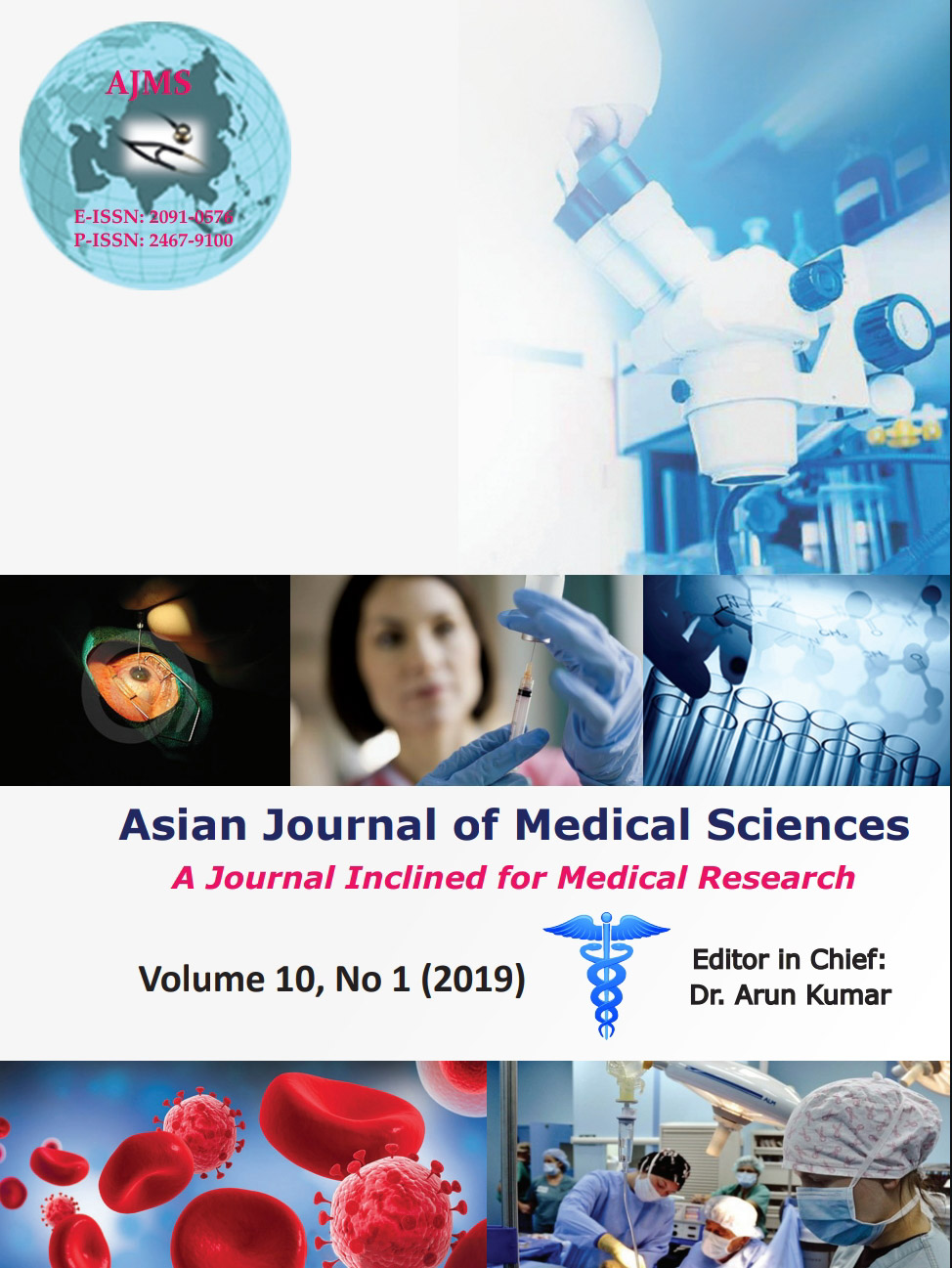A study of CBS gene polymorphism, plasma H2S levels and their association in type-2 diabetes mellitus
Keywords:
Diabetes mellitus, β-cell dysfunction, Plasma H2S, CBS gene polymorphismAbstract
Background: Hydrogen Sulphide (H2S), in recent years, is getting significant attention, as more evidences are emerging about its diverse biological roles. There are evidences of H2S having anti-inflammatory, neuro-modulator, vasodilator, anti-apoptotic and mitochondrial protective roles in various tissues. Among different tissues, β-cells of pancreas, according to some recent studies, get significantly affected by the imbalance in H2S homeostasis, leading to β-cell dysfunction and Diabetes Mellitus (DM). Cystathionine- β-synthase (CBS) enzyme is involved in the synthesis of H2S from cysteine in various tissues. Among various possible mutations in the CBS gene, a particular 833T-C mutation, has been found to be associated with various diseases.
Aims and Objectives: The present study was aimed to determine the extent of abnormality of H2S homeostasis in type-2 DM patients, and to find out presence and association (if any) of 833T-C mutation in CBS gene, in the patients of type-2 DM, in comparison to healthy control subjects, in the Indian population.
Materials and Methods: A cross sectional study was done with 40 clinically and biochemically diagnosed DM type II patients attending OPD of Endocrinology department of NRS Medical College & Hospital, Kolkata, and 40 age and gender matched non-diabetic control subjects. DNA was isolated from EDTA blood of all the study subjects, PCR done and results compared. Plasma H2S was measured by the N,N-dimethyl-p-phenylene-diamine method. Plasma glucose and serum insulin were measured by standardized commercial kits.
Results: Our study found the plasma H2S levels in the patients of type II DM to be significantly higher(P<0.001) than the control subjects. The results also found significant positive correlation between plasma H2S level with fasting serum Insulin level (P<0.001) and fasting plasma glucose level (P<0.001) in the diabetic patients. Among 40 DM patients, only two were heterozygous for the mutation, and had both mutated allele (242bp) and normal allele (174bp). Rest of the patients and all the control subjects were homozygous for the normal allele (174bp). This marginal difference in the incidence of mutated allele was not found to be statistically significant.
Conclusion: our study shows significant association of H2S dys-regulation with the type-2 Diabetes Mellitus in Indian population. The marginal but insignificantly higher incidence of 833T-C mutation in CBS gene, found in our study, warrants further research with higher number of study population, to more conclusively infer about the role of this mutation in the pathogenesis of type-2 DM.
Downloads
Downloads
Published
How to Cite
Issue
Section
License
Authors who publish with this journal agree to the following terms:
- The journal holds copyright and publishes the work under a Creative Commons CC-BY-NC license that permits use, distribution and reprduction in any medium, provided the original work is properly cited and is not used for commercial purposes. The journal should be recognised as the original publisher of this work.
- Authors are able to enter into separate, additional contractual arrangements for the non-exclusive distribution of the journal's published version of the work (e.g., post it to an institutional repository or publish it in a book), with an acknowledgement of its initial publication in this journal.
- Authors are permitted and encouraged to post their work online (e.g., in institutional repositories or on their website) prior to and during the submission process, as it can lead to productive exchanges, as well as earlier and greater citation of published work (See The Effect of Open Access).




